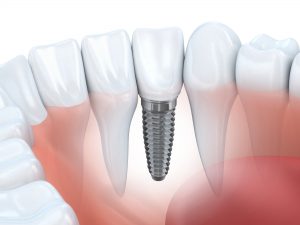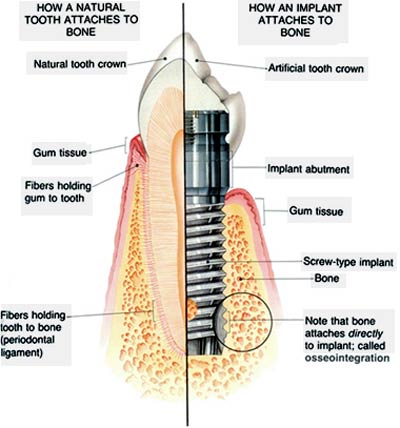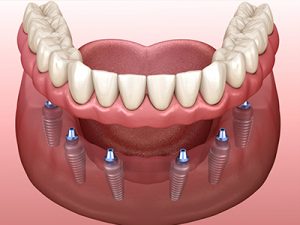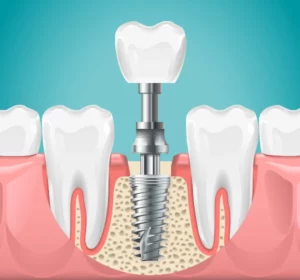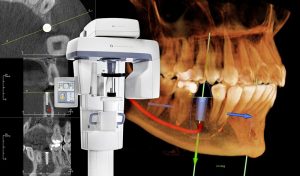Are you considering dental implants to restore your smile and improve your oral health? Dental implants are a popular and effective solution for replacing missing teeth, offering a more permanent and comfortable alternative to dentures and dental bridges. However, understanding how much do dental implants cost in 2024 is crucial when making an informed decision. In this comprehensive guide, we will explore the factors influencing dental implant costs, price ranges for various implant types, additional procedures, payment options, and insurance coverage.
Key Takeaways
- Dental implant costs vary significantly depending on factors such as the number of teeth being replaced, material quality and dentist experience.
- Geographic location and additional procedures can also affect cost ranges for different types of implants.
- Patients should research payment options including financing plans, dental insurance coverage, FSA/HSA accounts and consultation processes to better understand associated costs.
Understanding Dental Implant Costs
Dental implants cost can vary significantly based on several factors, including geographic location, material quality, and the dentist’s experience. Understanding these factors and their impact on the cost of dental implants is vital when considering this procedure as a long-term oral health investment. Curious about how much dental implants cost in 2024? Explore the latest pricing information and the variables that affect the cost of dental implants in the coming year.
Traditional dental care options, such as dental crowns and dental bridges, may need maintenance and replacement over time, leading to higher overall costs than dental implant treatment. In 2023, the cost of dental implants ranges from less than $1,000 to over $90,000, depending on factors such as the number of teeth being replaced and the location. So, how much do dental implants actually cost?
Geographic Location
One of the significant factors affecting dental implant costs is the geographic location of the dental practice. Living expenses and dental service fees can vary greatly depending on the region, which can directly impact the cost of dental implants.
For example, dental implant costs could be higher in urban areas with a higher cost of living, while rural areas with a lower cost of living might offer more affordable prices. Therefore, when planning for dental implant treatment, the location of your dental practice must be taken into account due to these price variations.
Material Quality
The quality of materials used in dental implants is crucial for their durability, success rate, and overall cost. High-quality dental implants are made from robust materials such as titanium or zirconia, which are biocompatible and facilitate osseointegration. These implants are produced with stringent quality control measures to ensure an accurate fit and long-term stability.
On the other hand, low-quality dental implants may be made from more economical materials that are less resilient and may not integrate efficiently with the jawbone, leading to potential complications and a shorter lifespan. Hence, selecting high-quality dental implants is vital, especially for single dental implants that need to blend in seamlessly with the surrounding natural teeth.
Dentist’s Experience
The dentist’s experience and expertise can also influence the cost of dental implants, with more experienced dentists often charging higher fees for their services. An experienced dentist typically possesses greater knowledge and proficiency in dealing with particular dental issues, such as dental crowns and implants, and has attended to a multitude of patients.
Researching the qualifications and experience of your dentist, requesting referrals, and reading online reviews are crucial steps when seeking an experienced dentist for your dental implant procedure. Additionally, most dental insurance providers may have a list of preferred providers, which can help you find an experienced dentist for your dental implant procedure.
Price Ranges for Different Types of Implants
The cost of dental implants varies depending on the type and number of teeth being replaced. We will explore the price ranges for single tooth implants, multiple teeth implants, and full mouth implants, along with factors that can influence these costs.
Single Tooth Implant
Single tooth implants are designed to replace a single missing tooth and typically cost between $1,500 and $6,000, depending on various factors. Single dental implant cost range between $3,000 and $4,800, which includes supplementary costs ranging from $1,500 to $2,800.
Factors affecting the cost of single dental implants include the dentist’s experience, the quality of materials used, the need for tooth extraction or bone grafts, and the complexity of the case. These factors should be taken into account when planning for a single dental implant treatment to guarantee the most favorable outcome.
Multiple Teeth Implants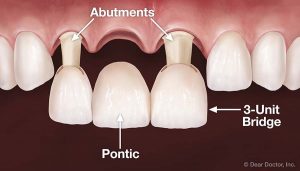
For patients missing multiple teeth, the cost of dental implants can range from $1,500 to $50,000, depending on the complexity of the procedure and the number of teeth being replaced. The cost of replacing two to four teeth with high-quality implants can range from $6,000 to $12,000. The estimated sum may vary depending on the case.
Bear in mind that if multiple teeth implants are placed in one area, additional procedures could be necessary, which could escalate the overall cost of the treatment. However, the long-term benefits of multiple teeth implants can outweigh the costs, providing a more permanent and comfortable solution compared to traditional dental bridges and dentures. In contrast, a single implant might be a more cost-effective option when only one tooth needs replacement.
Full Mouth Implants
Full mouth dental implants, also known as permanent dentures. These implants offer a more durable and reliable solution than traditional dentures, eliminating the need for adhesives and providing a better overall quality of life for patients. The cost of full mouth dental implants is anywhere from $17,000 to $90,000, with an average cost of around $34,000.
Factors affecting the cost of full mouth implants include:
- The materials used
- The number of implants required
- The dentist’s experience
- The location of the dental practice
- Any additional procedures or treatments needed
When planning for full mouth implant treatment, these factors must be carefully evaluated to ensure the best possible results for your oral health and general wellness.
Additional Procedures and Their Costs
In some cases, additional procedures such as bone grafting, tooth extraction, and sinus lifts may be necessary before dental implant placement, increasing the overall cost of dental implant surgery treatment.
We will delve into these procedures and their associated costs in the following subsections.
Bone Grafting
Bone grafting is often necessary for patients with insufficient jawbone density, as a strong and healthy jawbone is crucial for dental implant success. The procedure involves augmenting the jawbone with bone graft material, which can be sourced from the patient’s own body (autograft) or from a donor (allograft).
The cost of bone grafting can vary depending on the type of graft used, the complexity of the procedure, and the geographical location. Discussing the need for bone grafting with your dentist during the consultation is vital to guarantee a successful dental implant result.
Tooth Extraction
Tooth extraction may be required before implant placement if the tooth has sustained irreparable damage or if there is insufficient space in the jaw to accommodate the implant. The cost of tooth extraction can vary according to the type of extraction and location, typically ranging from $100 to $600 per tooth.
Discussing the need for tooth extraction during the consultation is necessary to decide the best plan of action for your dental implant treatment.
Sinus Lift
A sinus lift is a surgical procedure that is sometimes required for upper jaw implants. It involves raising the sinus membrane and augmenting the area with bone graft material. The cost of a sinus lift can range from $1,500 to $5,000, depending on the complexity of the procedure.
Factors that can influence the cost of a sinus lift include the complexity of the procedure, the type of bone graft material used, and the experience of the dentist conducting the procedure. A discussion about the need for a sinus lift during the consultation is crucial for securing a successful outcome of the dental implant procedure.
Payment Options and Insurance Coverage for Dental Implants
Various payment options and insurance coverage can help patients afford dental implants, including financing plans, dental insurance, and FSA/HSA accounts.
We will delve deeper into these options to help you find the most appropriate solution for your dental implant treatment.
Financing and Payment Plans
Financing and payment plans can help patients manage the cost of dental implants by breaking it down into monthly installments. Many patients use services like Care Credit or Proceed financing, which allows them to pay for their dental implants in manageable monthly installments. Patient financing is also available through Lending Club and other third-party companies.
Utilizing financing and payment plans can make dental implant treatment more affordable and accessible, guaranteeing patients get the necessary care for their oral health and overall wellness.
Dental Insurance Coverage
Dental insurance may cover some or all of the cost of dental implants, depending on the policy and the patient’s specific needs. Contacting your individual dental insurance provider is a necessary step to determine your dental insurance coverage for dental implants.
If you don’t have dental insurance coverage, don’t worry – there are still options available to help you afford dental implant treatment. Discuss payment plans and financing options with your dentist to find the most suitable solution for your needs.
Using FSA and HSA Accounts
Flexible Spending Accounts (FSA) and Health Savings Accounts (HSA) are tax-advantaged accounts that can be utilized to pay for dental implant procedures. Using FSA and HSA accounts to cover dental implant expenses allows patients to use pre-tax money, potentially saving money on their treatment.
Utilizing FSA and HSA accounts can make dental implant treatment more affordable, aiding patients in achieving the oral health and smile they deserve.
Consultation and Treatment Planning
A thorough consultation and treatment planning process can help patients understand the specific costs associated with their dental implant procedure and explore available payment options. We will cover what to expect during the consultation process and the factors that influence individual treatment costs in this section.
What to Expect During the Consultation

During the consultation with the dentist in rockville md will assess the patient’s oral health, discuss treatment options, and provide a personalized treatment plan with associated costs. Our doctors will use a 3D scan image to assess the bone density. Based on this assessment, they will determine if immediate implant placement is suitable or if additional grafting is required prior to implant placement..
The consultation is also an opportunity for the patient to ask questions and discuss alternative options with the dentist. Understanding the specific costs and treatment plan for your dental implant procedure allows you to make an informed decision about your oral health.
Factors Affecting Individual Treatment Costs
Factors that can affect individual treatment costs for dental implants include:
- The number of implants necessary
- The location of the tooth or teeth
- Scans and preliminary procedures
- The materials used
- The patient’s oral health
- The type of restoration
Each of these factors can influence the final cost of dental implant treatment, making it essential to discuss them with your dentist during the consultation process.
Understanding these factors and collaborating with your dentist to develop a personalized treatment plan will help ensure the success of your dental implant procedure and the best possible outcome for your oral health and overall well-being.
Summary
Dental implants are an excellent investment in your long-term oral health, providing a more permanent and comfortable solution for replacing missing teeth. However, understanding the costs involved is crucial when making an informed decision. By considering factors such as location, material quality, and dentist’s experience, exploring payment options and insurance coverage, and undergoing a thorough consultation and treatment planning process, you can ensure the best possible outcome for your dental implant procedure. So, take the first step towards restoring your smile and improving your oral health by exploring dental implant options today.
Frequently Asked Questions
Are dental implants worth the money?
Overall, dental implants are worth the money due to their permanent nature and slightly higher cost compared to traditional dental procedures. This makes them a good investment for long-term oral health.
How long do dental implants last?
Dental implants are designed to last for life, with the implant screw itself typically lasting a lifetime. The crown may need to be replaced after 10-25 years due to wear and tear, but proper dental care can help ensure your implants will last.
Why is one tooth implant so expensive?
The high cost of one tooth implant is due to the expensive materials used and the long training time required for implantology certification. Titanium, abutments and crowns all add to the price, making it quite expensive.
What are the 3 types of dental implants?
There are three types of dental implants: endosteal, subperiosteal and zygomatic. Endosteal is the most common and safest option, while subperiosteal is the second most popular and zygomatic the most complex.
How much do dental implants cost on average?
On average, dental implants can cost between $1,000 and $90,000 depending on the specific case.
Please select service, date and provider then click on the Find Appointments button.

